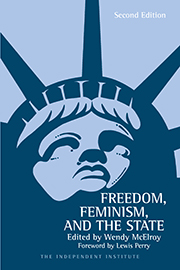Should the public pass judgment on Michael Jackson’s recent arrest for child molestation? Or should he be “innocent until proven guilty”?
This is the court of opinion versus the court of law debate. It misses the point. Of course, Jackson’s possible guilt should be discussed. The real question is how to conduct the public debate so that it does not reduce the probability of justice.
People have a right to debate the Jackson case because it may exert a defining influence on the laws under which they will live. As the direct result of an earlier allegation against Jackson, for example, California state law was changed. Now anyone who brings such a molestation allegation can be forced by the state to testify rather than be allowed to accept an out-of-court settlement.
Moreover, the case raises some of the most unsettling legal and moral issues confronting our society: child molestation, false accusations and how the legal system should deal with them, how the media should handle celebrity cases.
There is no presumption of innocence in the court of opinion. That’s a legal principle: A criminal defendant may not be convicted unless guilt has been proven beyond a reasonable doubt, with the accused bearing no burden to prove innocence.
The court of opinion can convict anyone on any basis. Issues of common decency certainly apply but everyone quite naturally speaks from their own concerns and opinions. This is healthy. This is human.
A key to whether the public dialogue harms the prospects of justice is information—that is, getting solid facts out so people can base conclusions on evidence. This is the responsibility of the media to whom most people turn for information.
In the case of Michael Jackson, the media have failed the public.
Another key is to draw and maintain a line between the two spheres. On one side is the subjective swirl of opinion that may not be accurate or fair: the court of opinion. On the other side is the objective body of laws and procedures that determine someone’s criminal guilt: the court of law.
The two spheres are distinct but they overlap and influence each other.
Public opinion can negatively impact the judicial system in many ways: It can prejudice the jury pool, encourage ambitious judges or DAs to push for inappropriate penalties and intimidate witnesses into silence or over-statement. Under public opinion, the police may stack on additional charges or proceed on inadequate evidence.
But public opinion can also benefit the judicial system. Open trial became a defendant’s civil right because they allowed the public to judge the fairness of a court proceeding and, so, to serve as a check on judicial abuse. Trial by jury embodies a similar logic. If a court proceeding is manifestly corrupt, then it is unlikely that 12 jurors will participate in the injustice. Public awareness is a bulwark against crooked courts and bad law.
Again, the media bears moral responsibility for promoting discussion that aids justice. Again, the media has failed.
Newscasts and commentary have deteriorated to the status of tabloid press, which seeks to create hysteria and stoke emotions ... not to inform. Consider the non-stop coverage of Jackson’s Nov. 20 arrest. The war in Iraq was shoved aside while otherwise reputable journalists speculated on what kind of plane would carry Jackson to the Santa Barbara police department for his booking. At one point, the camera focused at great length on the wrong plane.
A typical commentary that purports to revolve around Jackson’s guilt or innocence includes discussion of his facial surgeries, head-shaking over his eccentricities, a nasty dissection of his appearance, speculation on his past marriage to Lisa Marie Presley, a report on his sagging record sales, and commentary about which friends are or are not supporting him and why.
Interspersed with ad hominems and irrelevancies are interviews with legal experts that deteriorate into shouting matches with predictable regularity. A flood of commentators—none of whom know if Jackson is guilty—state their opinions with passion and persistence. They mix defamation with legal analysis, giving equal weight to both.
The media is actively subverting “information” and promoting hysteria, both of which make the court of opinion harm the court of law.
To some extent, news coverage has always done this. Famous examples come to mind: For example, Sacco and Vanzetti, a notoriously political trial in which two men—now widely considered innocent—were executed. Media coverage both reflected and created a mass hysteria that contributed to their death sentences.
But there used to be a distinction between news media and the tabloids. Perhaps erasing this distinction became inevitable with the advent of court TV, through which the judicial system became television’s first reality show, complete with public polls on innocence or guilt.
With the Jackson case, the media has a chance to redeem itself. It can retreat from the brink of O.J. Simpson-style reporting that Daniel B. Wood described in the Christian Science Monitor, “issues of jury selection, evidence tampering, and police conspiracy competed with topics such as the dating habits of O.J. houseguest Kato Kaelin and the favorite restaurants of prosecutor Marcia Clark.”
Forget fairness to Jackson for one moment. Viewers deserve better.









